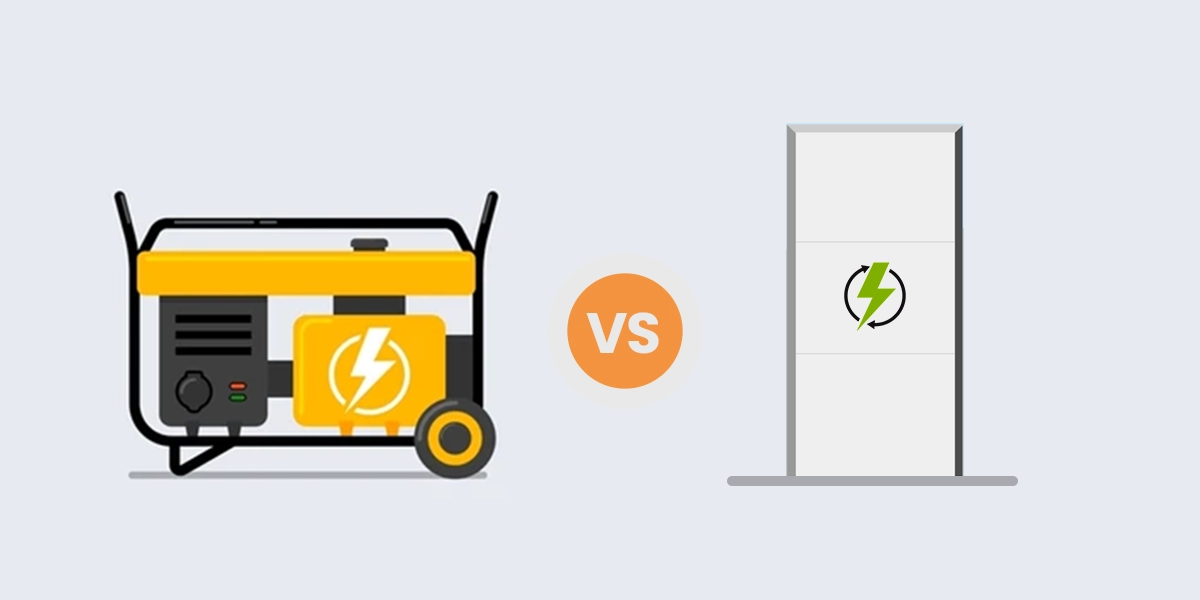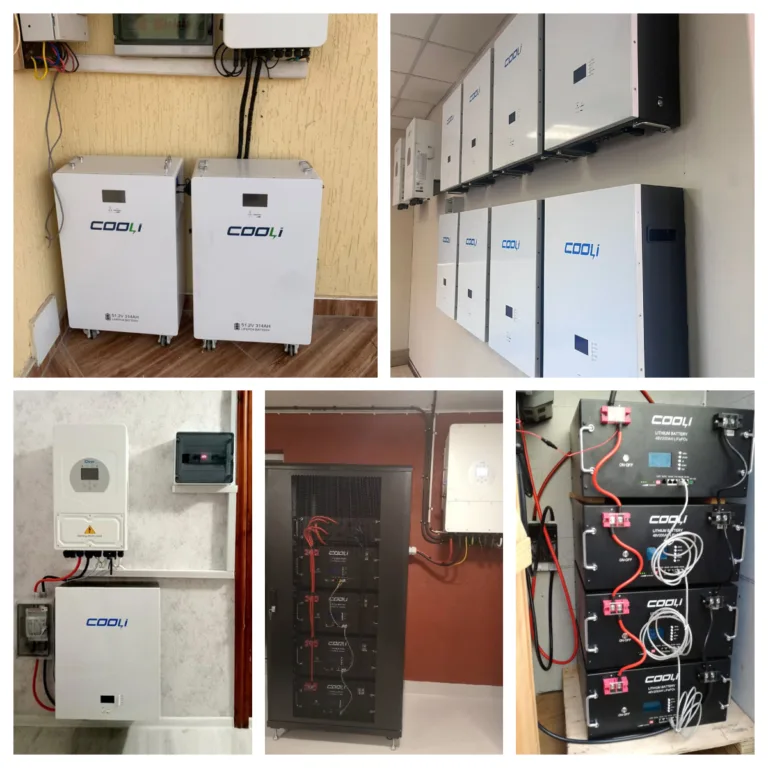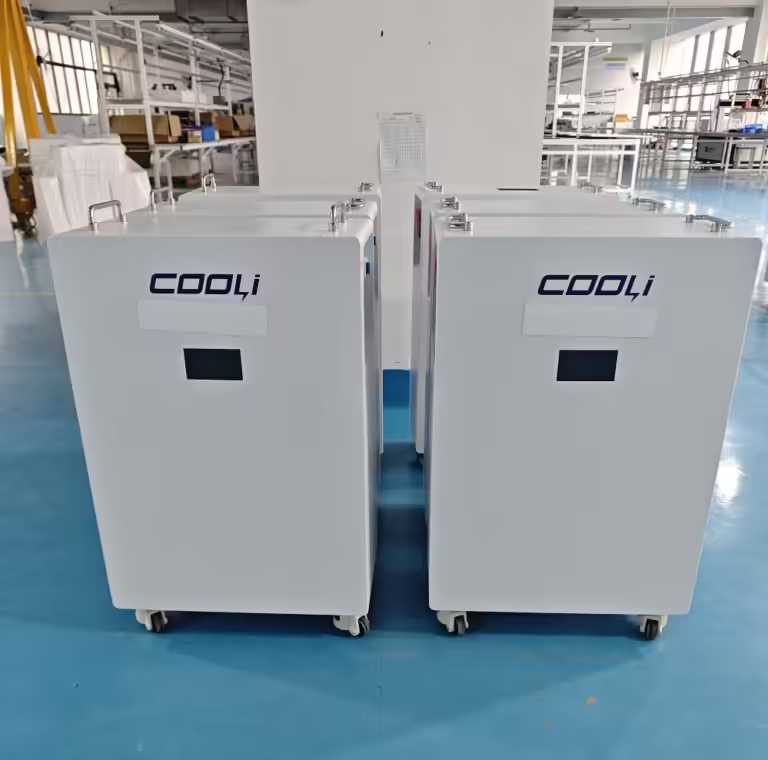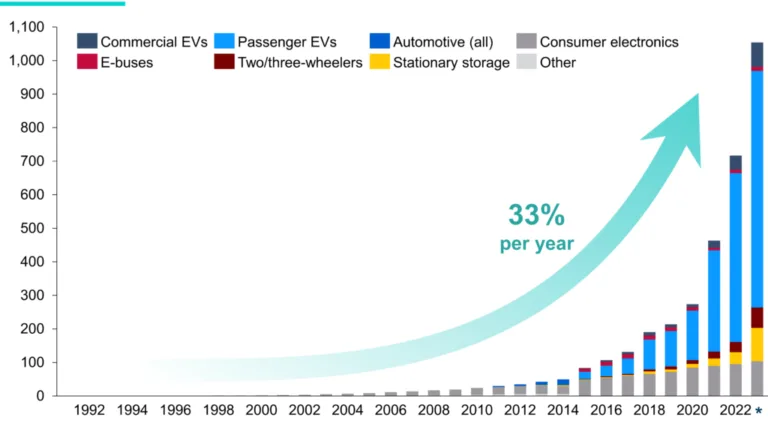Powering Your Home Off-Grid or During an Outage: Solar Battery vs. Generator
When the grid goes down, whether for a few hours or a few days, having a reliable backup power source is no longer a luxury but a necessity for many homeowners. The two primary contenders in this space are the traditional fuel-powered generator and the modern solar panel and battery storage system (like the Tesla Powerwall or LG Chem). Each has distinct advantages and drawbacks. Let’s break down the key differences to help you make an informed decision.
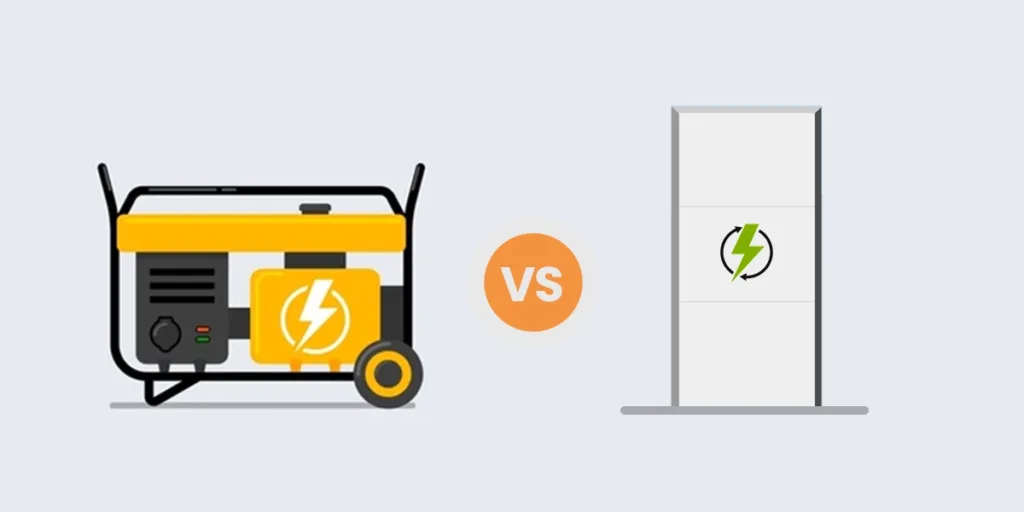
Solar Battery Storage System
This system consists of solar panels that convert sunlight into electricity, and a large, dedicated battery inside your home that stores that energy for use when you need it most.
Advantages:
- “Free” Fuel from the Sun: Once installed, the primary energy source—sunlight—is free. This protects you from fluctuating fuel costs and provides long-term energy independence.
- Silent and Emission-Free Operation: Battery systems operate silently and produce zero emissions at the point of use. They are safe to run indoors (typically in a garage) and won’t disturb you or your neighbors.
- Low Maintenance: With no moving parts (other than cooling fans), battery storage systems require very little ongoing maintenance.
- Automatic and Instantaneous Switching: When a power outage occurs, a solar + battery system can detect the outage and switch your home to battery power almost instantly, often in less than a second. There is no manual startup required.
- Integrated Energy Savings: Even when the grid is up, you can use stored solar energy to power your home during peak electricity rate periods (a practice called “peak shaving”), significantly reducing your monthly utility bills.
- Increased Home Value: Studies have shown that homes with solar and battery storage often have higher property values and sell faster than homes without.
Disadvantages:
- High Upfront Cost: The initial investment for a full solar panel array and battery storage system is significant, often costing tens of thousands of dollars.
- Weather and Sunlight Dependent: Your ability to recharge the battery is dependent on sunlight. During prolonged periods of cloudy weather or heavy snow, your energy reserves can be depleted unless you carefully manage usage.
- Limited Power Output and Capacity: Batteries have a finite amount of stored energy (measured in kWh). If you drain the battery and there’s no sun to recharge it, you will be without power. Most systems are designed for essential loads, not necessarily powering an entire high-consumption home for days on end.
- Longer Payback Period: While it saves money over time, the return on investment (ROI) takes several years to realize.
Generator (Standby)
A standby generator is a permanent fixture outside your home, similar to a central air conditioning unit. It is connected to your home’s electrical system and automatically kicks on when it detects a power outage. It typically runs on natural gas or propane.
Advantages:
- High Power Output and Long Runtime: Generators can produce a massive amount of power, often enough to run an entire home, including central air conditioning, electric water heaters, and all appliances, simultaneously. When connected to a natural gas line, they can run indefinitely as long as the gas supply is available.
- Reliability, Regardless of Weather: A generator doesn’t care if it’s sunny, rainy, or night-time. It will provide consistent power as long as it has fuel.
- Lower Upfront Cost: While not cheap, a professionally installed standby generator is generally less expensive upfront than a full solar + battery system.
- Proven Technology: Generators have been used for decades and are a well-understood, reliable technology.
Disadvantages:
- Ongoing Fuel Costs: You must pay for fuel—whether it’s natural gas, propane, or diesel. During extended regional outages, fuel can become scarce or expensive.
- Noisy Operation: Generators are loud, which can be a nuisance for you and your neighbors, especially during nighttime hours.
- Emissions and Environmental Impact: They burn fossil fuels, producing exhaust emissions (CO2, carbon monoxide, etc.) and contributing to air pollution and your carbon footprint.
- Regular Maintenance Required: To ensure reliability, generators require scheduled maintenance, including oil changes, filter replacements, and periodic testing. If not maintained, they may fail to start when needed most.
- Not Instantaneous: While automatic, the switchover time is not instantaneous (usually 10-30 seconds). This brief gap can cause some sensitive electronics to reset.
Head-to-Head Comparison Table
| Feature | Solar + Battery | Standby Generator | Winner For… |
|---|---|---|---|
| Fuel Source | Sunlight (Free) | Natural Gas, Propane, Diesel (Costly) | Solar + Battery |
| Upfront Cost | Very High | High | Generator |
| Operating Cost | Very Low | High | Solar + Battery |
| Noise & Emissions | Silent, Zero On-Site Emissions | Noisy, Produces Emissions | Solar + Battery |
| Runtime | Limited by Battery & Sun | Unlimited (if on natural gas) | Generator |
| Power Output | Limited, for essential loads | High, can run entire house | Generator |
| Maintenance | Very Low | Regular & Required | Solar + Battery |
| Grid Independence | High (can go fully off-grid) | Low (only works during outages) | Solar + Battery |
Conclusion: Which One is Right for You?
The choice between a Solar + Battery system and a Generator ultimately depends on your priorities, budget, and location.
- Choose a Solar + Battery System if:
- Your primary goal is long-term energy independence and reducing your carbon footprint.
- You want to lower your monthly electricity bills in addition to having backup power.
- You live in an area with reliable sunlight and are concerned about noise and emissions.
- You are willing and able to make a larger upfront investment for lower ongoing costs.
- Choose a Standby Generator if:
- Your main concern is pure, high-power reliability during outages of any length or weather.
- You need to power your entire home, including large energy-intensive appliances like central AC.
- You have a lower initial budget and are comfortable with ongoing fuel and maintenance costs.
- You have reliable access to a natural gas line.
The Hybrid Solution: For the ultimate in resilience, some homeowners are now opting for a hybrid system that includes both a generator and a solar + battery setup. The battery handles frequent, short outages and daily energy savings, while the generator acts as a “backup for the backup” during prolonged periods of bad weather, ensuring you never run out of power. While this is the most expensive option, it provides the greatest peace of mind.

